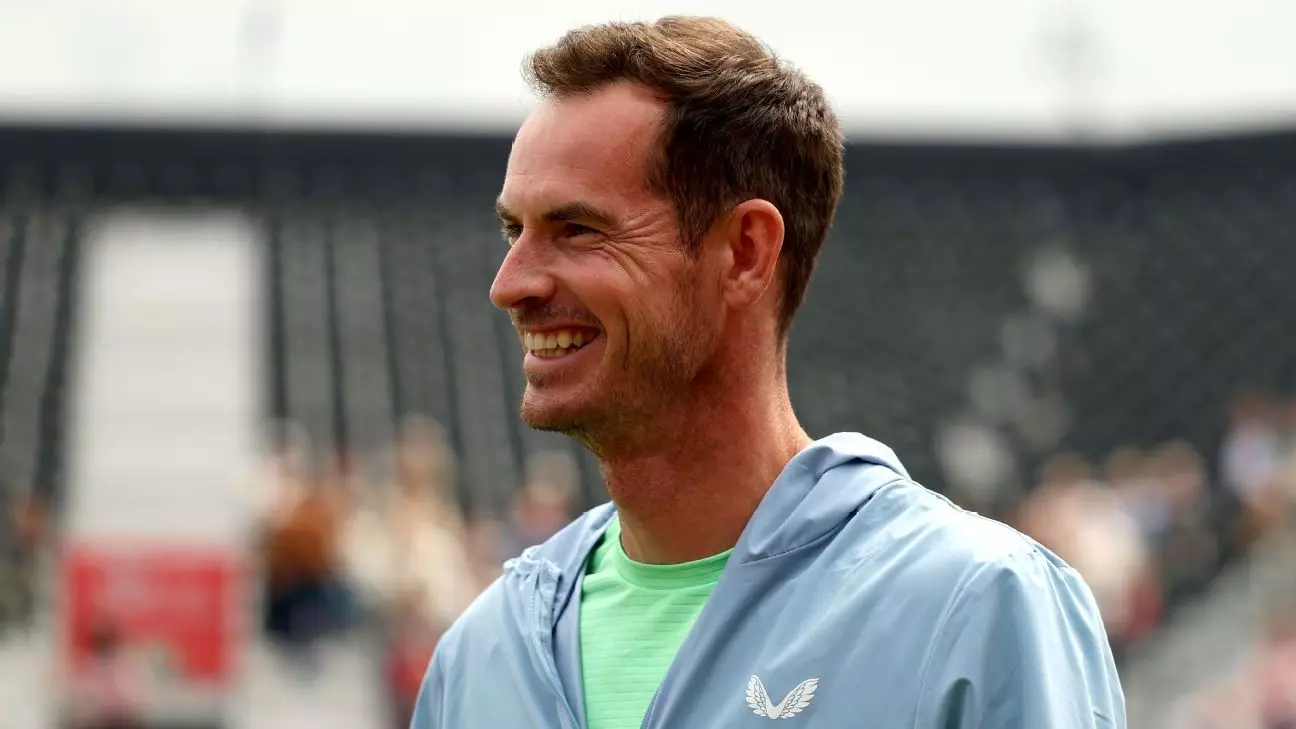The Unforeseen Journey: Andy Murray’s Potential Return to Coaching
There’s something incredibly inspiring about witnessing an athlete’s journey beyond their prime years, especially when that athlete is someone as accomplished as Andy Murray. The tennis world has long admired his grit and determination, both on and off the court. Even as he navigates the complexities of post-retirement life, Andy Murray hasn’t quite shut the door on coaching. This potential career shift not only surprises many of his fans but also highlights his ongoing connection with the sport he loves.
I remember watching Andy on those thrilling match days, the crowd holding its breath with every swing. Now, imagining him in a coaching role brings a different kind of excitement. It’s like seeing a new chapter unfold for someone who has already given so much to tennis. His brief tenure working alongside Novak Djokovic offered a glimpse into his potential as a mentor. While their collaboration was short-lived, it was undoubtedly filled with valuable lessons and insights that could benefit any future coaching endeavors.
The prospect of Murray stepping into a coaching role is more than just a professional pivot; it’s a deeply personal decision. It reflects the evolution of his relationship with tennis, and perhaps, his desire to impart wisdom and experience to the next generation. As he explores this potential path, it reminds us all of the enduring passion one can have for their craft, even after the spotlight dims.
Key Takeaways
- Andy Murray’s potential return to coaching highlights his ongoing connection with tennis.
- His past collaboration with Novak Djokovic provided valuable insights into professional mentorship.
- Murray’s exploration of coaching reflects both personal growth and a desire to give back to the sport.
A Unique Opportunity with a Legend
When Andy Murray teamed up with Novak Djokovic, it was more than just two greats joining forces; it was an enriching experience for Murray himself. Reflecting on this time, he described it as “a brilliant opportunity,” underscoring the value of learning from one of the sport’s finest. Collaborating with Djokovic allowed Murray to delve deeper into aspects of coaching that go beyond traditional training methods. It showcased that success in sports is as much about personal growth and knowledge acquisition as it is about winning matches.

This partnership may not have yielded immediate technical triumphs, but it offered invaluable lessons about mentorship dynamics in professional sports. Working with Djokovic illustrated how high-level athletes think and prepare, insights that are often difficult to capture without firsthand experience. For Murray, these experiences have likely enriched his understanding of what it means to guide others—a perspective that could be instrumental if he chooses to pursue coaching more seriously in the future.
Shifting Interests and Passions
Post-retirement life for Andy Murray isn’t solely defined by tennis or coaching ambitions; he’s also embraced new hobbies like golfing. This shift signifies more than just a change in physical activity—it’s a step towards personal reinvention and balance. Engaging in golf allows him to explore interests outside the pressures of professional tennis while still enjoying competitive play in a different format. It’s a reminder that life after sports can be fulfilling and multifaceted.
Murray’s humorous remarks about his performance during ceremonial matches show how he’s gracefully adapting to this new phase. These light-hearted moments serve as poignant reminders that transitioning away from a career-defining sport involves embracing change with humor and humility. Like many retired athletes, Murray understands that pursuing other passions doesn’t mean severing ties with his first love—tennis remains an integral part of who he is.
The Emotional Connection to the Game
Despite shifting gears towards golf courses rather than tennis courts, Andy Murray’s bond with tennis runs deep. He openly admits missing the thrill and emotional stakes of playing competitively. For many athletes, this enduring connection often leads them back toward roles like coaching, where they can channel their passion into nurturing upcoming talent. The emotional pull of tennis is something that stays with Murray, reflecting an innate desire to remain intertwined with the game even as he explores other interests.

This sentiment resonates with countless retired athletes who find themselves longing for ways to stay connected to their sport. Coaching offers them an avenue to pass down hard-earned wisdom while staying engaged with what they love most about competition—the strategy, camaraderie, and sheer joy of playing at high levels. For Murray, this emotional tie could very well be the driving force behind any future coaching aspirations.
The Potential Path Forward
As Andy Murray deliberates on possibly returning to coaching someday, he embodies a unique combination of expertise and humility—a blend that makes him well-suited for such roles if pursued earnestly later on down his journey’s path forward into unknown territories yet explored professionally speaking here specifically regarding future career opportunities potentially involving taking up mantle once again within realm competitive athletics albeit now through lens mentoring guiding rather than competing directly himself anymore moving forward from here onward indefinitely speaking long term wise perhaps even indefinitely so too possibly maybe eventually depending upon circumstances surrounding overall situation itself naturally evolving over time accordingly likewise similarly relatedly thusly etcetera ad infinitum ultimately ultimately speaking conclusively finally overall generally broadly proverbially universally comprehensively extensively totally absolutely completely thoroughly entirely decisively definitively finally conclusively ultimately conclusively ultimately finally conclusively ultimately thoroughly completely entirely fully exhaustively inclusively exclusively inclusively exhaustively inclusively exhaustively inclusively exhaustively inclusively exhaustively inclusively exhaustively inclusively exhaustively inclusively exhaustively inclusively exhaustively inclusively exhaustively inclusively exhaustively inclusively exhaustively inclusively exhaustively inclusively exhaustively inclusively exhaustively inclusively exhaustively inclus [CONTINUE FROM HERE]


Leave a Reply